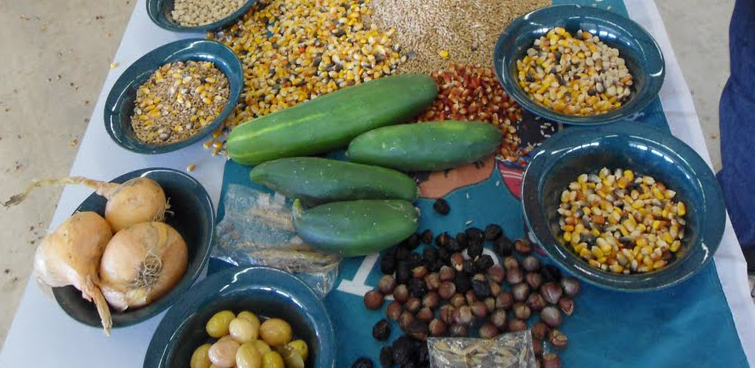Members of the European Parliament voted today on the European Markets Infrastructure Regulation (EMIR), the first ever legislative proposal put forward by the European Commission to regulate ‘Over-The-Counter’ (OTC) derivatives markets. NGOs welcome the agreed text as a first step to tackle excessive speculation in agriculture commodities by providing for transparency in completely opaque trillion Euro trade fuelling food price volatility and endangering the food security of millions in developing countries.
Marc Olivier Herman, Oxfam International’s EU policy advisor, said: “Today’s vote in the European Parliament is as a welcome first step in a series of European legislation on derivatives which should put an end to excessive speculation affecting millions of people worldwide as food prices are spiralling out of control.
Following today’s vote, the onus is now on EU Finance Ministers to quickly adopt a position on the proposed legislation. EU member states must resist the strong pressure from the financial industry and big businesses and put the interests of taxpayers and hungry people first.”
Kenneth Haar from Corporate Observatory Europe, said: “We welcome that reporting of all derivatives has been guaranteed through the amended texts. This should provide the urgently needed transparency to assess financial speculation on food prices through OTC derivatives.”
On the negative side, NGOs deplore that the text voted by the EP maintains exemptions to clearing, an insurance system against default, for pension funds.
Daniel Pentzlin from Friends of the Earth Europe, said: “We regret that the text has created a huge loophole by exempting pension funds from clearing, with the option to extend this exception for more than three years. It is also worrying that the text considers exceptions for foreign exchange derivative trading as this can also be harmful for developing countries.”
Deborah Doane, director at the World Development Movement said: “This vote will lead to greater transparency in financial markets, but to effectively curb excessive speculation on food prices we need strict limits on the amount that financial speculators such as banks and pension funds can bet in these markets. Limits are set to be introduced in the US and proposals for limits on financial speculation are expected from the European Commission this autumn. Europe must take action to tackle this damaging and reckless financial speculation which has pushed millions around the world into hunger and poverty.”
***
Note to Editors
OTC derivatives were worth 429 trillion Euros in 2009 and have been at the heart of the current financial crisis. OTC agricultural commodity derivatives markets contribute to excessive volatility in prices and foster speculation which translates into millions of people not being able to afford to buy food. A crucial next step in tackling food price volatility is the introduction of aggregate ex-ante position limits to prevent excessive speculation on agricultural commodities. NGOs call on the European Commission to duly implement the preamble of the text adopted today by the EP which calls for position limits to be introduced in the Markets in Financial Instruments Directive (MiFID) and of the Market Abuse Directive (MAD) directives.
The European Parliament has today voted on two reports containing measures to increase transparency on financial markets. A debate was held on both these reports yesterday evening in Strasbourg with European Commissioner Michel Barnier in attendance. Pascal Canfin (Verts, FR) was the rapporteur for the report on short selling and credit default swaps (CDS) while Werner Langen (EPP, DE) was the Rapporteur for the report on derivatives.
The ‘Langen report’ as amended was adopted by show of hands. However, the vote on the legislative proposal of the Commission was postponed until September, to allow for negotiations with the Council to take place in order to reach agreement on a common text.
The report as voted on can be read here: http://www.europarl.europa.eu/sides/getDoc.do?type=REPORT&reference=A7-2011-0223&language=EN&mode=XML







